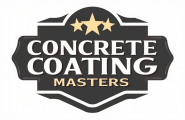Urethane Cement Floor Coating
Serving Massachusetts, Rhode Island, and Connecticut
Urethane cement flooring represents a high-performance coating solution renowned for its exceptional resistance to heat, heavy traffic, and chemical exposure.
This versatile material offers significant benefits industrial and business applications.
Composition and Properties
Urethane cement combines polyurethane resins with cementitious materials to create a robust flooring system. This hybrid formulation delivers outstanding durability, chemical resistance, and performance characteristics suited for demanding industrial and commercial environments.
Key Advantages
- Faster Installation Timeline: Unlike epoxy systems that require concrete to cure for 28 days, urethane cement can be applied to concrete just 7-10 days after pouring, significantly accelerating construction schedules.
- Superior Durability: These floors withstand extreme wear conditions, including heavy foot and vehicle traffic, impacts, and abrasion, making them exceptionally long-lasting.
- Comprehensive Chemical Protection: Urethane cement resists degradation from acids, alkalis, solvents, and oils, providing protection in environments where chemical exposure is common.
- Thermal Shock Resistance: This flooring maintains integrity during rapid temperature fluctuations without cracking or separating from the substrate.
- Sanitary Properties: The non-porous surface prevents liquid absorption and microbial growth, supporting cleanliness in hygiene-critical applications.
Limitations
-
Installation Expertise Required: Application demands specialized techniques and experienced contractors. Proper surface preparation, precise mixing, and appropriate curing are essential for optimal performance.
-
Higher Initial Investment: Urethane cement typically costs more than conventional flooring options due to material expenses, specialized equipment requirements, and skilled labor needs.
Ideal Applications
- Food Processing Facilities: Meets stringent sanitation standards while withstanding harsh cleaning protocols and temperature variations.
- Industrial Manufacturing: Provides lasting protection in environments with heavy equipment, chemical exposure, and mechanical stress.
- Healthcare and Pharmaceutical Settings: Delivers the sterile, easily maintained surfaces required for medical and pharmaceutical production facilities.
- Breweries and Beverage Production: Offers resistance to acids, cleaning agents, and temperature changes common in beverage manufacturing.
- Animal and pet shelters: Offers resistance to animal waste and abrasion.
